#Louis VII
Text

3 page comic on patreeon, "Leviathan’s Fishhook” featuring a very grumpy and biblical Louis VII and babby Philippe
#Louis vii#louis viii of france#philip augustus#12th century#comics#my art#wanna do more for this later but for now it’s a bit standalone
7 notes
·
View notes
Text
Capétiens vs Plantagenêts: a matter of suzerainty.
It was also his position as suzerain which gave Louis VII the chance of interfering in and inflaming the quarrels which raged in the Angevin family. This was an effective means of weakening his great antagonist. Henry II and Eleanor produced a large family, and reared four of their sons to the age at which custom demanded that they should be provided for. Their eldest son Henry was granted Normandy in October 1160 and was associated with his father on the throne of England in 1170. Richard was given Aquitaine in 1169 and Geoffrey Brittany in 1175. John, the youngest child of Henry and Eleanor, was not old enough to be entrusted with any estates until the very last years of his father's reign, and by the time he came of age all the available lands had been given away. As Duke of Normandy, Duke of Aquitaine, Count of Poitiers, the sons of Henry II came to perform homage to the King of France and became his men. It was in vain that Henry II sought to utilise the Norman procedure of pariage to maintain the unity of his continental territories in favour of his eldest son, the "Young King" Henry. (Under pariage the eldest son succeeded to all the heritable property and was alone answerable for it to the suzerain; each of his brothers received a share, but held it of him). This device could not be put into full operation in Aquitaine, which was not part of Henry's heritage but Eleanor's. And when she granted it to Richard, he owed homage not to his father or his eldest brother, but to the King of France. The Young King Henry had done homage as Duke of Normandy to Louis VII in October 1160. When he repeated his homage in 1170 it was made to embrace Anjou, Maine, and Brittany as well. At the same time Richard did homage to Louis for Aquitaine.
It is true that in 1174 Henry II compelled his sons to perform homage to him after their rebellion, but this new homage did not necessarily annul their homages to the King of France. Henry II himself had done homage to Louis VII in 1151 and again in 1169, and was to perform it yet again to Louis's successor, Philip Augustus, in 1180. Thus throughout the conflict between Louis VII and Henry II the French king's suzerainty was affirmed and recognised. This did not save Louis from defeats at his vassal's hands. Nevertheless, to judge from the Toulouse affair in 1159, Louis' suzerainty occasionally cramped Henry's style, and put him in the wrong in the eyes of contemporaries, including the barons of his continental fiefs. To play the rebel vassal was hardly prudent for a king when many of his own vassals were rebelliously inclined. It was not that the idea of rebellion itself shocked feudal society. On the contrary, it was one of the legitimate courses open to a vassal needing to safeguard his rights against the encroachments of his suzerain. But in the disputes between Louis VII and Henry II, Henry was the law-breaker as well as the vassal in revolt. For his rebelliousness against an impeccable suzerain there could be no justification.
It may be objected that Louis VII was constantly intriguing with Eleanor of Aquitaine and with Henry II's sons. But after all Eleanor, as Duchess of Aquitaine, was herself a royal vassal. Two of Henry's sons had done homage to Louis. Another, Geoffrey, by dint of his father's vassalage, was the French king's rear-vassal. And the king had, as suzerain, not merely the right but the duty to concern himself with the welfare and harmony of his great vassal's family, to ensure that a proper settlement was made on the sons. It would be unfair to accuse Louis of hypocrisy; nor did Henry ever complain that the French king was making trouble in his family. Louis' own grievances against Henry were many and varied, and Henry never made a serious effort to deny their validity.
Thus from 1154 to 1180 Henry II had the appearance of a vassal engaged in unjustifiable revolt against his suzerain. This line of conduct undermined his own position. It constantly reminded the baronage of the Angevin fiefs that the King of France was Henry's suzerain- if only because his suzerainty was so often invoked. And it helped to prevent the fusion of the individual elements of the Angevin empire on the continent. Provincial separation, already too strong for Angevin rule to subdue, was reinforced.
Robert Fawtier- The Capetian Kings of France
#xii#robert fawtier#the capetian kings of france#louis vii#henry ii of england#aliénor d'aquitaine#henry the young king#richard the lionheart#geoffrey plantagenêt#john lackland#jean sans terre
9 notes
·
View notes
Text
I just saw someone lowkey praise louis vii in his younger years this is too funny
#he burned down a church and alienated his vassals so badly he had to go on crusade as a king to rebuild his reputation#and he also fumbled the bag w eleanor so badly#while I do understand praising him in later years praising him when he was younger?? you’re tripping#louis vii#king louis vii#medieval history
0 notes
Text

#royaume de france#dynastie capétienne#capétiens#louis vii#roi de france#vive le roi#crusaders#crusades#full length portrait#in armour#full-length portrait
1 note
·
View note
Text
A central element of the myth of [Eleanor of Aquitaine] is that of her exceptionalism. Historians and Eleanor biographers have tended to take literally Richard of Devizes’s conventional panegyric of her as ‘an incomparable woman’ [and] a woman out of her time. […] Amazement at Eleanor’s power and independence is born from a presentism that assumes generally that the Middle Ages were a backward age, and specifically that medieval women were all downtrodden and marginalized. Eleanor’s career can, from such a perspective, only be explained by assuming that she was an exception who rose by sheer force of personality above the restrictions placed upon twelfth-century women.
-Michael R. Evans, Inventing Eleanor: The Medieval and Post-Medieval Image of Eleanor of Aquitaine
"...The idea of Eleanor’s exceptionalism rests on an assumption that women of her age were powerless. On the contrary, in Western Europe before the twelfth century there were ‘no really effective barriers to the capacity of women to exercise power; they appear as military leaders, judges, castellans, controllers of property’. […] In an important article published in 1992, Jane Martindale sought to locate Eleanor in context, stripping away much of the conjecture that had grown up around her, and returning to primary sources, including her charters. Martindale also demonstrated how Eleanor was not out of the ordinary for a twelfth-century queen either in the extent of her power or in the criticisms levelled against her.
If we look at Eleanor’s predecessors as Anglo-Norman queens of England, we find many examples of women wielding political power. Matilda of Flanders (wife of William the Conqueror) acted as regent in Normandy during his frequent absences in England following the Conquest, and [the first wife of Henry I, Matilda of Scotland, played some role in governing England during her husband's absences], while during the civil war of Stephen’s reign Matilda of Boulogne led the fight for a time on behalf of her royal husband, who had been captured by the forces of the empress. And if we wish to seek a rebel woman, we need look no further than Juliana, illegitimate daughter of Henry I, who attempted to assassinate him with a crossbow, or Adèle of Champagne, the third wife of Louis VII, who ‘[a]t the moment when Henry II held Eleanor of Aquitaine in jail for her revolt … led a revolt with her brothers against her son, Philip II'.
Eleanor is, therefore, less the exception than the rule – albeit an extreme example of that rule. This can be illustrated by comparing her with a twelfth century woman who has attracted less literary and historical attention. Adela of Blois died in 1137, the year of Eleanor’s marriage to Louis VII. […] The chronicle and charter evidence reveals Adela to have ‘legitimately exercised the powers of comital lordship’ in the domains of Blois-Champagne, both in consort with her husband and alone during his absence on crusade and after his death. […] There was, however, nothing atypical about the nature of Adela’s power. In the words of her biographer Kimberley LoPrete, ‘while the extent of Adela’s powers and the political impact of her actions were exceptional for a woman of her day (and indeed for most men), the sources of her powers and the activities she engaged in were not fundamentally different from those of other women of lordly rank’. These words could equally apply to Eleanor; the extent of her power, as heiress to the richest lordship in France, wife of two kings and mother of two or three more, was remarkable, but the nature of her power was not exceptional. Other noble or royal women governed, arranged marriages and alliances, and were patrons of the church. Eleanor represents one end of a continuum, not an isolated outlier."
#It had to be said!#eleanor of aquitaine#historicwomendaily#angevins#my post#12th century#gender tag#adela of blois#I think Eleanor's prominent role as dowager queen during her sons' reigns may have contributed to her image of exceptionalism#Especially since she ended up overshadowing both her sons' wives (Berengaria of Navarre and Isabella of Angouleme)#But once again if we examine Eleanor in the context of her predecessors and contemporaries there was nothing exceptional about her role#Anglo-Saxon consorts before the Norman Conquest (Eadgifu; Aelfthryth; Emma of Normandy) were very prominent during their sons' reigns#Post-Norman queens were initially never kings' mothers because of the circumstances (Matilda of Flanders; Edith-Matilda; and#Matilda of Boulogne all predeceased their husbands; Adeliza of Louvain never had any royal children)#But Eleanor's mother-in-law Empress Matilda was very powerful and acted as regent of Normandy during Henry I's reign#Which was a particularly important precedent because Matilda's son - like Eleanor's sons after him - was an *adult* when he became King.#and in France Louis VII's mother Adelaide of Maurienne was certainly very powerful and prominent during Eleanor's own queenship#Eleanor's daughter Joan's mother-in-law Margaret of Navarre had also been a very powerful regent of Sicily#(etc etc)#So yeah - in itself I don't think Eleanor's central role during her own sons' reigns is particularly surprising or 'exceptional'#Its impact may have been but her role in itself was more or less the norm
342 notes
·
View notes
Text

TUDOR WEEK 2024
It is baaaaack by popular demand!. We are hosting Tudor Week 2024. This is going to be hosted from Monday the 14th of October to Sunday the 20th of October.
The week will go as follows:
Day 1 - Monday, 14th of October: Your Favourite Tudor (members of the family that were born Tudors).
Day 2 - Tuesday, 15th of October: Favourite Tudor contemporary quote about or said by the Tudor family.
Day 3 - Wednesday, 16th of October: Best Tudor What If?
Day 4 - Thursday, 17th of October: Fancast Your Favourite Tudor Family Member.
Day 5 - Friday, 18th of October: Favourite Tudor Iconography (e.g. Tudor Rose, Anne Boleyn's falcon, Jane Seymour's Phoenix).
Day 6 - Saturday, 19th of October: Favourite Tudor Couple (could include unmarried couples, e.g., Elizabeth I and Robert Dudley).
Day 7 - Sunday, 20th of October: Favourite Tudor-related location.
This can cover all events and media that a Tudor family member is present, so from Owen Tudor to Elizabeth Tudor, and may include spouses and acknowledged children of direct members of the Tudor family (if unsure who we cover please check our Family page). We have attempted to make it as broad as possible and no pressure if you are late with some of the days, we will still reblog.
Previous Years: 2021, 2022, 2023
Be sure to tag your posts TudorWeek2024 and DailyTudors, looking forward to seeing your posts!
The Team at DailyTudors
#tudorweek2024#henry vii#henry viii#edward vi#mary i#elizabeth i#owen tudor#catherine de'valois#edmund tudor#margaret beaufort#jasper tudor#catherine woodville#elizabeth of york#arthur prince of wales#katherine of aragon#margaret queen of scotland#james iv of scotland#archibald douglas#henry stuart#anne boleyn#jane seymour#anne of cleves#kathryn howard#catherine parr#mary queen of france#louis xii#charles brandon#henry fitzroy#announcement
93 notes
·
View notes
Text
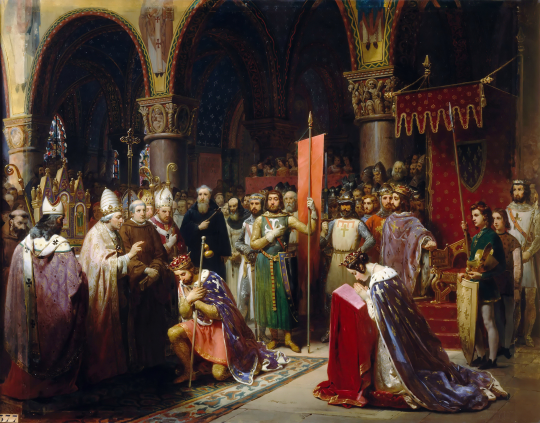
Jean-Baptiste Mauzaisse (French, 1784-1844)
Louis VII Takes the Standard at Saint-Denis, 1840
Chateau de Versailles
#Jean-Baptiste Mauzaisse#french art#french#france#louis vii takes the standard at saint-denis#1800s#art#fine art#european art#classical art#europe#european#oil painting#fine arts#europa#mediterranean#queen#king#french royals#royals#royal#christentum#christian#western civilization
103 notes
·
View notes
Text
Political gains & contents of the Concordat of 1801
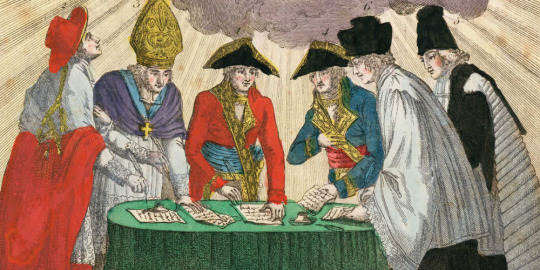
Agreement between Napoleon Bonaparte and Pope Pius VII on 15 July 1801 in Paris.
Rome seems to have made immense sacrifices. The first advantage won by the First Consul was to seal, by the very act of signing an agreement, the recognition of the French Republic by the Holy See, and hence the rupture of the traditional alliance between Rome and the legitimate monarchies. It was a disastrous blow to French royalism in exile, for it freed the faithful in the interior from scruples about the regime of the Year VIII.
The second advantage was to confirm a church of salaried public servants, amenable to the State and having mainly sociological functions. Here we see a continuation of the Gallican tradition, but also of the thought of philosophes who had urged both the submission of the clergy to the State and its integration within it. The refusal to reestablish the religious orders meant also the rejection of any ecclesiastical life that might escape the authority of the bishops. Even the cathedral chapters were reduced to decorative functions.
Thirdly, no question was raised about the sale of the former Church properties, a matter of great importance for strengthening the prestige of Bonaparte in the eyes of the property-owning segments of French society.
Pius VII, for his part, failed to obtain the recognition of Catholicism as the state religion. He agreed to use his authority for what Consalvi called “the massacre of a whole episcopate,” by requiring the resignation of all French bishops, both constitutional and refractory, since Napoleon judged such a step to be indispensable for effacing all traces of the revolutionary schism. It is right to see in this operation an encouragement to ultramontanism, for it affirmed the powers of the Pope over the French Church. But it also encouraged a tendency in the French episcopate, that is, a whole ecclesiological movement for appeal to an ecumenical council in matters of discipline.
Among the numerous provisions of the Articles we may point out those that legalized all forms of worship in France, and those that strictly subordinated the lower clergy to the bishops (“prefects in violet robes”): only a fifth of the parish priests received the title of curé, and with it secure tenure; all others became simple desservants of succursales, that is assistant pastors.
This is what the Church got out of the deal:
What then did the Pope gain in this Concordat, “more likely to raise difficulties than to solve them” (Bernard Plongeron). Maintenance of the unity of the Roman Church, which a consolidation of the schism in France might have ruined forever; recognition of canonical investiture, which allowed the Pope to overcome the zelanti among the cardinals who opposed the Concordat but favored a reinforcement of spiritual authority; and resumption of regular pastoral life in France, where the new administrative and social status of the priest encouraged a growing number of ordinations, which reached several hundred by the end of the Empire.
Pius VII in any case remained attached to the results accomplished, a fact that deprived the small “shadow church” opposed to the Concordat of the possibility of resistance. His continuing attitude was shown later in his willingness to come to Paris for the Emperor’s coronation.
Source: Louis Bergeron, L'Episode napoléonien. Aspects, intérieurs: 1799-1815
English: France Under Napoleon, tr. R. R. Palmer
#Louis Bergeron#Bergeron#napoleon#napoleonic era#napoleonic#napoleon bonaparte#first french empire#french empire#L'Episode napoléonien. Aspects intérieurs: 1799-1815#France Under Napoleon#Napoleon’s reforms#reforms#Concordat#christianity#Christian#19th century#histriy#Catholic Church#Catholic#history#1800s#french revolution#Pope Pius VII#Pius VII#napoleonic reforms
29 notes
·
View notes
Text







Royal Birthdays for today, August 3rd:
Maria of Jülich-Berg, Duchess of Jülich-Berg, 1491
Frederick William III, King of Prussia, 1770
Archduke Albrecht, Duke of Teschen, 1817
Haakon VII, King of Norway, 1872
Princess Christina, Mrs. Magnuson, 1943
Louis of Luxembourg, Prince of Nassau, 1986
Charlotte Casiraghi, Daughter of Princess Caroline, 1986
#Maria of Jülich-Berg#frederick william iii#archduke albert#haakon vii#princess christina#louis of luxembourg#charlotte casiraghi
12 notes
·
View notes
Text


Working on a new comic, set a few years before IEFH...featuring Louis VII going grumpy and biblical and Philippe being cute and annoying
#working title#Leviathan's Fishhook#But might change it as things go along#wip#my art#My comics#Louis VII#louis viii of france#Philip II of France#Philip augustus
4 notes
·
View notes
Text
Loyal brothers
The Capetian kings found their brothers no more difficult than their sons. The exceptions were the brothers of Henri I, Robert and Eudes, but thereafter the younger Capetians developed a tradition of loyalty to their elders. Robert of Dreux, the brother of Louis VII, who was the focus of a feudal revolt in 1149, was only a partial exception, for at that date the king was still in the East, and the real object of the hostility was the regent Suger. By contrast, Hugh of Vermandois was described by contemporaries as the coadjutor of his brother, Philip I. St Louis's brothers, Robert of Artois, Alphonse of Poitiers, and Charles of Anjou, never caused him any difficulties, and the same can be said of Peter of Alençon and Robert of Clermont in the reign of their brother Philip III. Even the disturbing Charles of Valois, with his designs on the crowns of Aragon and Constantinople, was always a faithful servant to his brother Philip the Fair, and to the latter's sons. The declaration which he made when on the point of invading Italy in the service of the Pope is revealing:
"As we propose to go to the aid of the Church of Rome and of our dear lord, the mighty prince Charles, by the grace of God King of Sicily, be it known to all men that, as soon as the necessities of the same Church and King shall be, with God's help, in such state that we may with safety leave them, we shall then return to our most dear lord and brother Philip, by the grace of God King of France, should he have need of us. And we promise loyally and in all good faith that we shall not undertake any expedition to Constantinople, unless it be at the desire and with the advice of our dear lord and brother. And should it happen that our dear lord and brother should go to war, or that he should have need of us for the service of his kingdom, we promise that we shall came to him, at his command, as speedily as may be possible, and in all fitting state, to do his will. In witness of which we have given these letters under our seal. Written at Saint-Ouen lès Saint-Denis, in the year of Grace one thousand and three hundred, on the Wednesday after Candlemas."
This absence of such sombre family tragedies as Shakespeare immortalised had a real importance. In a society always prone to anarchy the monarchy stood for a principle of order, even whilst its material and moral resources were still only slowly developing. Respectability and order in the royal family were prerequisites, if the dynasty was to establish itself securely.
Robert Fawtier - The Capetian Kings of France
#xii#xiii#xiv#robert fawtier#the capetian kings of france#henri i#robert i de bourgogne#louis vii#robert i de dreux#abbé suger#philippe i#hugues de vermandois#louis ix#robert i d'artois#alphonse de poitiers#charles i d'anjou#philippe iii#pierre d'alençon#robert de clermont#philippe iv#charles de valois
8 notes
·
View notes
Text
NOTE: Just because I am interested in someone, does not mean I agree with their actions. I do find some of the people listed above attractive (in case you want to gush about them with me). I dont do politics and I dont speculate on dead people's sexuality, gender, etc. I am open to "headcanons" if you wish to discuss within measure. I do not name and shame so please be assured that if I am uncomfortable interacting with you, Ill POLITELY let you know, so if you are shy, do not hesitate to dm me. People looking for drama/hate will be blocked.
Talk to me if you are interested in:
Please check the tags on my blog, the list has gotten waaaay too big to fit in here.
Have a nice day/night! 🌈
20 notes
·
View notes
Text

#mine#piercing#piercings#nose ring#nose piercing#vermont#vent#fallout new vegas#vintage men#music video#vintage#video games#video#viral#final fantasy vii#vogue#deja vu#louis vuitton#creative writing#washington dc#obi wan kenobi#woods#witchcraft#webcomic#women#water#window#doctor who#black and white#writing
3 notes
·
View notes
Text
Happy Father's Day!!! 💙
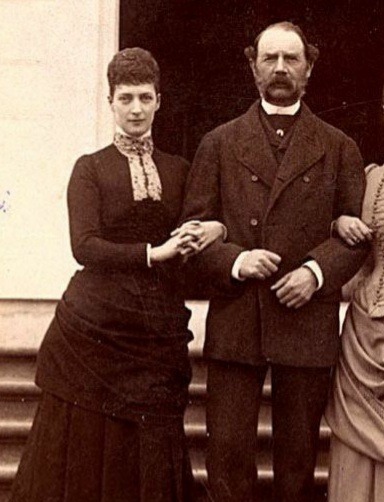
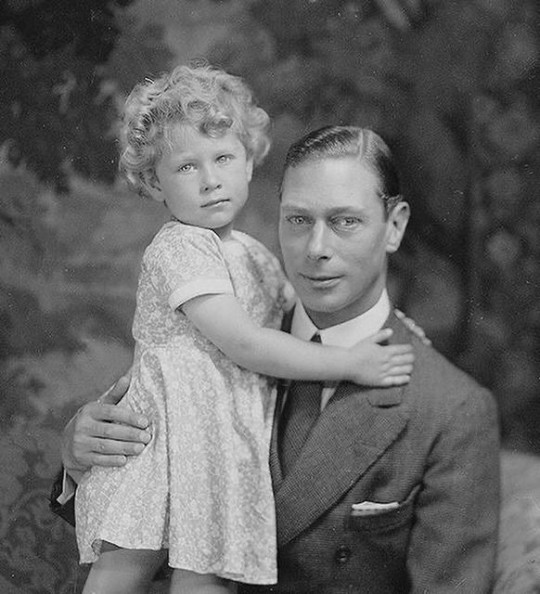
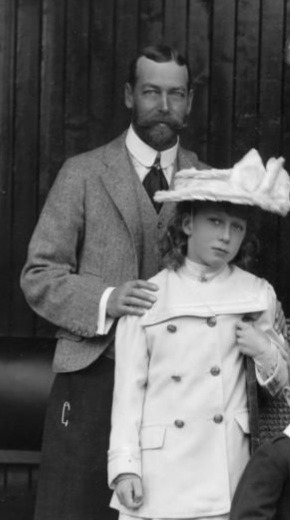
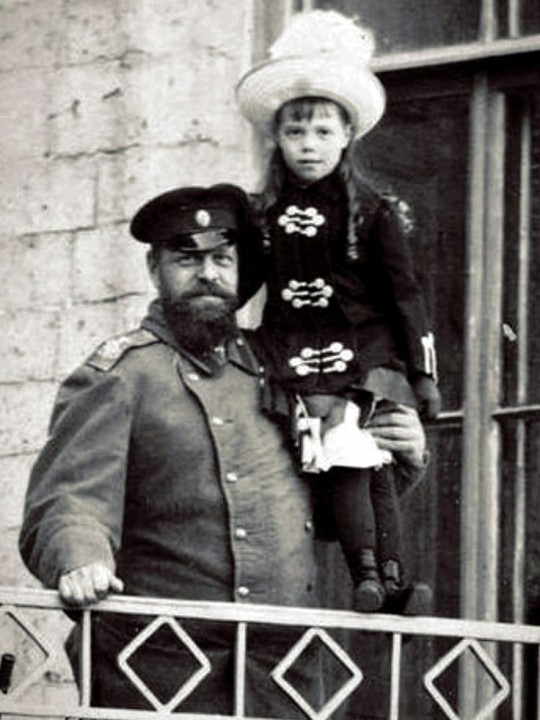
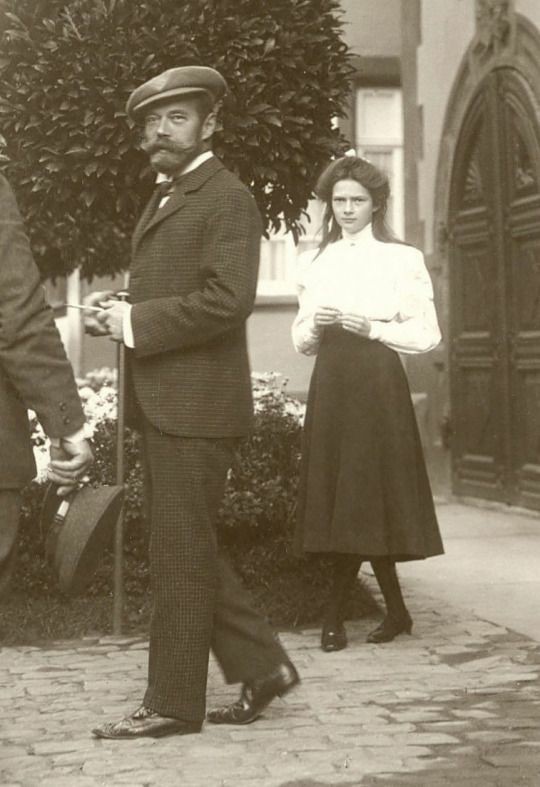
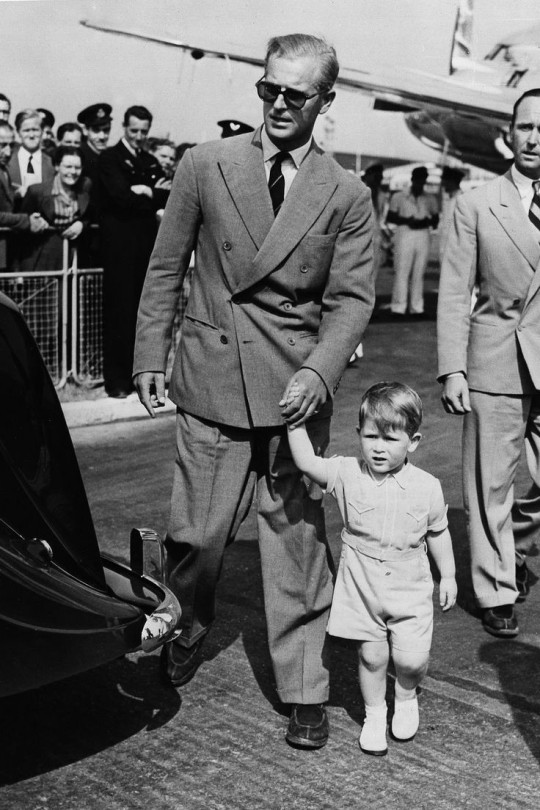

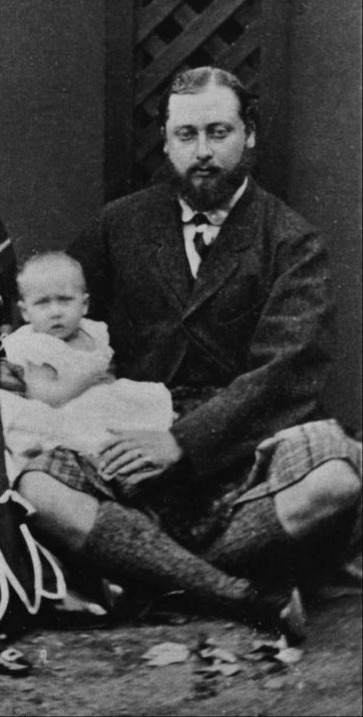
Christian & Alexandra, Albert & Elizabeth, George & Mary, Sasha & Olga, Nicholas & Tatiana, Philip & Charles, Ernest Louis & Elisabeth, and Edward & Louise.
#queen alexandra#alexandra of denmark#king christian ix of denmark#queen elizabeth ii#elizabeth windsor#king george vi#king george v#princess mary#mary princess royal#tsar alexander iii#grand duchess olga alexandrovna#tsar nicholas ii#grand duchess tatiana nikolaevna#prince philip#duke of edinburgh#king charles iii#grand duke ernest louis of hesse#ernest louis#princess elisabeth of hesse#king edward vii#princess louise duchess of fife#louise princess royal#father's day
35 notes
·
View notes
Text
"[Matilda of Boulogne's office as Queen of England], initiated and broadly defined by the coronation ordo, gave her royal power and authority to share in governance. Her obligations and activities were shaped by custom established by previous queens and the ad hoc needs of king and realm. [...] [Matilda's] thorough integration into the governance of the realm was not repeated in [Eleanor of Aquitaine’s] years as queen of England. Eleanor's coronation followed a new model that emphasized the queen as progenitor of royal heirs and subordinate to the king rather than as sharer of royal power. Though Eleanor acted as regent in England between 1156 and 1158 and in Poitou on several occasions from 1165 on, her writs suggest delegated rather than shared royal authority. In England, her power was limited by the lack of lands assigned to her use and by the elaboration of financial and judicial administration. Whereas [Matilda of Boulogne's] inheritance allowed her to play an integral role in politics by securing the Londoners' loyalty and a steady supply of mercenaries, Eleanor's inheritance provided her with more extensive power in Poitou and Aquitaine than in England. Until 1163, Eleanor withdrew funds from the Exchequer by her own writ, but unlike her Anglo-Norman predecessors, she was not a member of its council nor did she issue judgments from the royal court. Eleanor's counsel and diplomatic activities, in contrast to Matilda's, are rarely mentioned. She did, however, encourage the 1159 Toulouse campaign and supported Henry in the Becket affair and the coronation of young Henry. Eleanor was not a prominent curialis; she rarely witnessed Henry's charters or interceded to secure the king's mercy. She did follow in Matilda's footsteps in her promotion of her sons, cultivation of dynastic goals through the Fontevraudian tombs, and patronage that reflected her family's traditions. For Matilda, to be queen encompassed a variety of functions-curialis, diplomat, judge, intercessor, and "regent." Through a combination of factors, Eleanor's role as queen was much more restricted."
-Heather J. Tanner, "Queenship: Office, Custom or Ad Hoc", Eleanor of Aquitaine: Lord and Lady (Edited by Bonnie Wheeler and John Carmi Parsons)
#this is so interesting when it comes to the gradual evolution of queenship over the years (post-Norman to early modern)#eleanor of aquitaine#matilda of boulogne#queenship tag#historicwomendaily#english history#my post#don't reblog these tags but#the irony of the 'Eleanor of Aquitaine Exceptionalism' rhetoric is that not only is it untrue#but you could actually make a much more realistic argument in the opposite direction#We know that it was during Eleanor's time as queen of France that 'the queen's name was disappearing from royal documents' (Ralph Turner)#She did not enjoy an involvement in royal governance that her mother-in-law Adelaide of Maurienne enjoyed during her time as queen#As Facinger points out 'no sources support the historical view of Eleanor as bold precocious and responsible for Louis VII's behavior'#Even as Duchess of Aquitaine she played a secondary role to Louis who appointed his own officials to the Duchy#Only four out of her seventeen ‘Aquitanian’ charters seem to have been initiated by Eleanor herself#And now it seems that even Eleanor's role as queen of England was also more restricted than her predecessors#with new coronation model that was far more gendered and 'domestic' in nature#That's not to argue that it meant a reduction in the queen's importance but it does mean that the 'importance' took on a different form#There's also the fact that Eleanor's imprisonment and forced subjugation to Henry after the rebellion till the end of her life#was probably what set the precedent for her sons' 'Lord Rules All' approach with their own wives (Berengaria and Isabella)#as Gabrielle Storey has suggested#None of this is meant to downplay Eleanor's power or the impact of her actions across Europe - both of which were extensive and spectacular#But it does mean that the myth of her exceptionalism is not just incorrect but flat-out ridiculous
22 notes
·
View notes



